Hello Friends ,
Today we chat with Jesper aka Noosfære from Denmark, he has recently released his full length album on Iboga, and we decided to make this interview and got to know him better. ‘Noosfære” is the one-man army of Danish musician and producer Jesper Skovgaard. Music has always been a huge part of his life and started out by picking up the guitar in a rock band. During the years he has been drawn towards the ever evolving worlds of electronic music and in 2017 he launched ‘Noosfære’. The aim was to create musical journeys that allow for – and drive – the exploration of the inner worlds of thoughts, feelings and other mind-bending abstractions of the human mind.
Interview is made by Gagarin Project on 01/02/2019
Hi Jesper !
Thank you for finding time to talk to us !
Always a pleasure!Describe your music in three words
I would say dreamy, atmospheric and other worldly.
You catched our attention with your latest release on Iboga Records. How long have you been working on those tracks and what does the album title synchro refer to ?
The foundation for the whole album was actually laid during a week of isolation in a summer cabin in the Danish countryside. It’s amazing how much your creativity can be boosted by abandoning the city and all the noise and distractions happening here. Don’t get me wrong, because I love the city, but getting away from the business and into a scenery of calm and inspiring nature made a huge difference on my inspiration and creativity. I left with a blank slate, but a lot of initial – abstract – ideas about the musical direction I wanted to go in and returned with raw sketches of all the tracks and a rough skeleton of the album. Of course these sketches were pretty far from the finished tracks in terms of detail, but most main motifs, the initial form and the main moods were all laid out. When I returned to the city I probably waited a month or so before continuing working on the tracks and when i picked them up again I spend several months of concentrated work re-arranging and tweaking them into their current form.
The title ‘Synchro’ reflects on our modern individualization of society and the narrative that follows this line of thought. We are constantly getting told that it is our own responsibility to create our own lifestyles, norms, values and careers. We become more responsible for our own success, but it also means that we are increasingly responsible for our own failure. The trend of individualization often tells us that it is because of our own personal inadequacy that we sometimes fail and it is a narrative that constantly detach us from the social communities we originate from.
In the era of individualization I hope that ’Synchro’ may act as a reminder of this and an auditory catalyst for a more emotional-subjective and physiological human synchrony.
This is probably the question you hear often – Why the name Noosfære ? What language is it ?
‘Noosfære’ is the Danish word for ‘Noosphere’, which refers to the sphere of human thought. It is derived from the Greek ‘nous’ meaning mind and ‘sphaira’ meaning sphere. The overall aim of my musical output is to create musical journeys that allow for – and drive – the exploration of the inner worlds of thoughts, feelings and other mind-bending abstractions of the human mind. The word ‘Noosphere’ seemed ideal for describing this purpose. Since there’s both a German psy-trance act and a German metal band with the same name I chose the Danish version of the word instead.
What brought you to music production , what are your main musical influences ?
I have been playing music for a huge part of my life and used to be a guitarist in a progressive rock band. At some point way back I got my hands on a copy of Cubase and without any prior experience or training I started playing around with music production. It was such an exciting and experimental time and the idea that you could do ‘anything’ yourself – on a computer at home – was extremely attractive. The band I was a part of began composing and recording an entire album by ourselves on my computer and we learned a lot along the way. It was before the web exploded with tutorials and online courses, so it was purely learning by doing and playing around and having fun. Fast forward some years and I started studying ‘Sound and Music Computing’ at the University and along the way I gradually got more and more into synthesizers, electronic music composition and production.
Because of my background in progressive rock then acts found within that domain like Tool, King Crimson and The Mars Volta – to name a few – are woven into my musical DNA, but in a more electronic direction some of my musical heroes are definitely Shpongle and Tipper. I have a very broad musical taste and find inspiration from many different genres and artists. For example I really admire an artist like Björk. It’s truly amazing how she has been developing and constantly pushing the boundaries of her musical output and technology over the years. But it is so hard to ‘choose’ between musical influences, because there’s so many, that I could spend several pages name dropping. Haha… Fortunately the list is long and so is the inspiration.
How has your musical taste evolved over time?
My taste for electronic psychedelic music has grown a lot within the last handful of years. I have been into psychedelic music for as long as I can remember, but it has been from a rock perspective. As mentioned above my heart still beats for all that stuff, but the fascinating worlds of psy oriented electronic music has really caught my attention. There’s so much going on in this direction these days. Modern synthesis and psychedelic sound design, crazy filtered/modulated bass and tribal rhythms all glitched up and coming together with beautiful East meets West melodies. A great musical transformation allowed by a combination of creativity and more and more powerful computers and audio software. Can’t wait to see (or more correctly listen) to the music that will be produced just 5 years from now.
Do you have an educational background and/or musical training? How do you value them ?
I studied ‘Sound and Music Computing’ at the University as mentioned earlier. It is a really interesting and fast developing interdisciplinary field combining digital signal processing, music perception and cognition, audio analysis and synthesis, music information retrieval and sonic interaction design (and more). I loved studying these fields and it has given me a lot of knowledge that I use daily for my productions and general work. It has been really valuable to me.
I have no formal musical training however, so at that point I’m purely autodidact. Over the years I have taught myself a good amount of music theory, so I know what I’m doing. I always try to develop my skills and knowledge and a natural part of my musical process is learning new things and improving my skills. To me this is equally important to the music that comes out in the end.
Are you a geek person ? How important is technology’s in your music production process ?
I’m pretty geeky. There’s many ways to be geeky, but most people that have studied ‘Sound and Music Computing’ are pretty geeky. Not in a social awkward way or anything, but describing audio signals via code (mathematics) is essentially pretty geeky. haha… It’s a discipline where you need to pay great attention to technical detail.
Technology is really important in many ways in my production process, but that’s kind of an indivisible part of being an electronic musician in general. Obviously I rely a lot on my computer and I also use a lot of software. These days I’m a lot in the box, but I also use hardware gear. In general I try to restrict myself in terms of hardware though. I like the idea of restricting physical material stuff in my life and only have what I ‘need’ or make use of. It’s an important, but sometimes very hard exercise! When it comes to music gear I find myself in a dilemma, because hardware affords a different and way more interesting and inspiring interaction in contrast to the common way of interacting with software via mouse and keyboard. I think this resonate in many electronic musicians.
What intention do you put in your sound ? What do you want to reach with it ?
Creating a setting for introspection and self exploration is definitely a main purpose for me when composing music. I would be extremely grateful if my music could be setting the tone for some deep existential thoughts or just taking the listener in a contemplative direction. I don’t have any lyrics in my music to communicate any messages through, so when working with purely instrumental music it naturally becomes harder and more abstract to convey a specific message, but music is so strong at conveying moods and feelings. So two main intentions with my music are without doubt to bring the listener in a flow of thoughtful meditation and evoke a strong emotional response within the listener.
Often people describe my music as very cinematic and as having this kind of moody/ melancholic undertone to it and that it evokes a lot of feelings and internal images when listening. This is something that I tend to favor a lot myself when listening to music and I kind of naturally end up in those directions when composing.
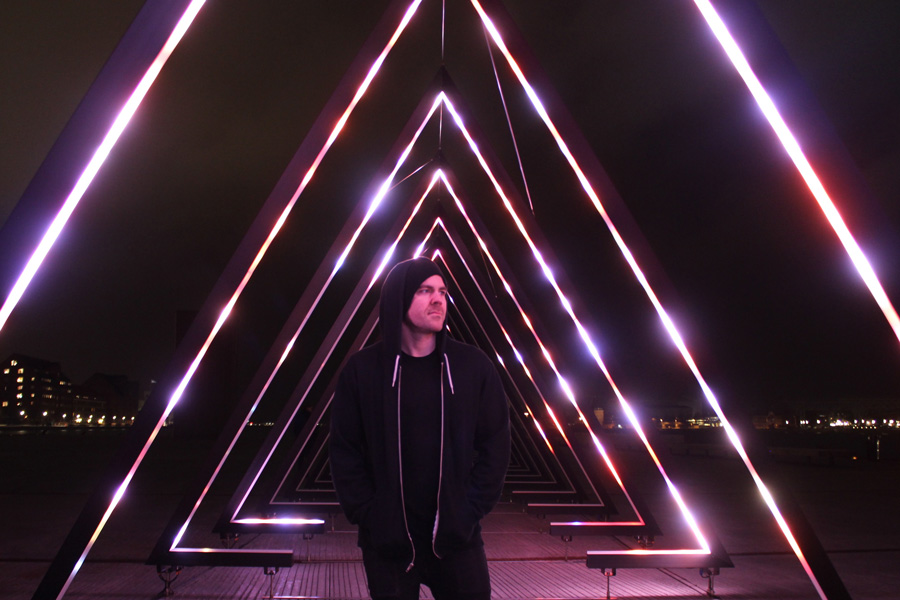
What is your process of being creative and finding inspiration ?
In some ways then you might say that everything you do is an influence on the art you make. Cinema is a great source of inspiration for me. I love watching movies and I’m a huge fan of directors like David Lynch, Gaspar Nóe and Tarkovskij. It’s pretty cliche, but travelling is also a great source of inspiration, both directly and indirectly. You get exposed to new people, cultures, ideas, music etc., but also the simple fact that you create a completely different focus for yourself when travelling. Getting away from all the everyday tasks and time consuming routines thereby creating more time and space for your thoughts and ideas to mature.
What do you feel when you are making music?
Making music typically puts me in a relaxed and contemplative state of mind. When I’m in the studio I take a break from the outside world and all the horrible things going on these days. I like to see it as a meditational practice where you connect to your inner self. For me creativity is what happens when the connection to your inner has been well established.
Do you often play LIVE sets ? Do you have a DJ experience maybe ? What is your favorite time to play?
I mainly play live sets, but since it’s only me on stage there’s obviously a limit to how live it can be. I would love to be able to expand my material and live set to include a band on stage at some point. I have been thinking about this for quite some time now. Hopefully it can become a reality in the near future.
I have actually never DJ’ed before (professionally that is), so I don’t have any DJ experience at all. It’s a little bit weird, since so many in this scene has a DJ background or DJ a lot on the side of their musical project(s). I feel that a lot of people start out by DJing and then get into producing, but as mentioned earlier my background is within progressive rock and during the years I gradually got more and more into producing and composing music on the computer instead of being a part of a band. Being a part of the rock scene in Denmark is not the best way to get exposed to DJing. haha…
My favorite time to play is definitely during the night and favorite environment is at psychedelic festivals. It’s like the setting has been tailored to fit my musical intentions and I definitely feel my music has most impact and works best during the darkish night time.
What is the weirdest place you have ever played in?
A bunker 30 feet below the surface.
Sounds like fun ! How do you play your live sets (both equipment and software setup) ?
At the heart of my setup I have a laptop running Ableton Live which is controlled by either a Ableton Push or a Akai APC 40 MK II (or sometimes both). This is my mobile and really practical setup, which is great for light travelling and bringing on the airplane etc.. On top of my core setup I like to bring my Access Virus TI Polar, some additional midi controllers for extra effects and a Strymon reverb pedal. I recently got an Elektron Octatrack, which I thought could be fun to experiment with integrating into my live setup, but I haven’t gotten that far yet.
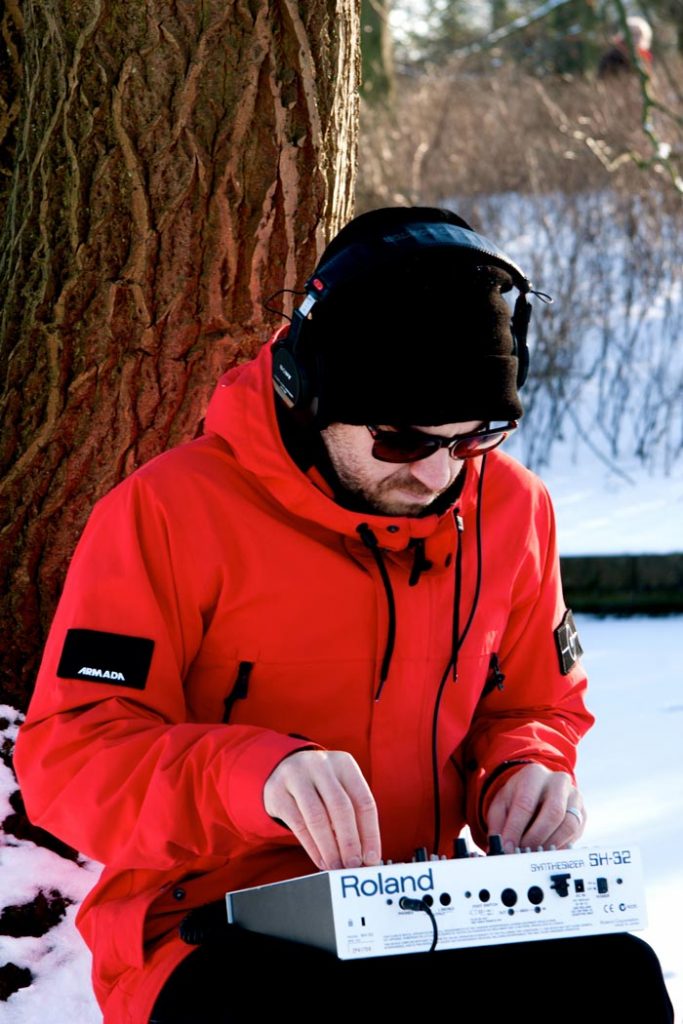
Have you ever had a technical problem while performing?
I have actually been pretty lucky so far, but I always try to remind myself of Murphy’s Law that state that ‘everything that can go wrong will go wrong’. But I guess that every electronic musician have experienced problems in some way or the other. I’ve actually never experienced Ableton crashing or anything like that, but once my computer lost communication with my audio interface which obviously resulted in complete silence. When my audio interface loose connection I have to restart Ableton Live before being able to reconnect which is pretty frustrating. I believe it was related to all the audio issues that arose after Apple released OSX 10.11 El Capitan.
Who are the downtempo artists that inspire you?
The problem here is that there are so many great downtempo artists, so I could go on for some time, but at the moment I listen a lot to artists like Seamoon, Kalya Scintilla, In’R’Voice, Desert Dwellers, AstroPilot, Ochre and Martin Nonstatic to name a few. These days I also listen a lot to Dirty Hippie’s new release ‘Moon’, which I really like.
What music do you like to dance to?
Well it depends on the occasion. I really love the grooves of artist like WhiteBear, Merkaba, Evil Oil Man and Sensient. They instantly make me want to dance. These are all acts that have a very psychedelic sound and in some way or the other resonate with an ancient, unified and deep spiritual message and feeling of connectedness. In a different direction I also like to dance to dark and raw techno. The electronic scene in Copenhagen is influenced a lot by the techno scene in Berlin and I love the vibe that these parties have. But for me at least there’s a huge difference between the psychedelic psybass music (like the artist just mentioned above) and the rawness of powerful techno, but I love both. It is however very rare to find parties with psybass music in Copenhagen and I find that a real shame. For this you need to travel to other Countries, but that’s not always a bad thing. Haha… Fortunately there’s ‘people’ like Iboga/Psynation to sometimes arrange a great psy-trance party here in Copenhagen.
What are the musical tracks that will always inspire you?
Everything by Shpongle! As mentioned earlier I really admire the magical output of Simon Postford and Raja Ram. In a different direction there’s a band like Tool, which without a doubt, have been one of the most inspirational musical projects of all time for me!
~ What advice do you have for beginners who want to succeed? The first step are usually the hardest, isn’t it ?
It is a hard question to answer without sounding too cliche, by saying the obvious like don’t give up, and do it for the love of the music itself, and not the money, recognition and adoring fans. But there’s definitely a reason why that’s a cliche! Be in the music because of the music itself and because you cannot keep yourself from expressing you through music. Keep following your path and don’t give up. And it might be a good idea to be realistic about your definition of success or what it means to succeed. Don’t expect that living from your art is an easy life. I think that most people living from their art usually sacrifice some of the things that are considered to be a ‘normal life’. I believe that good things are bound to happen if you are patient, focused and are willing to pay the price for your dreams to come true!
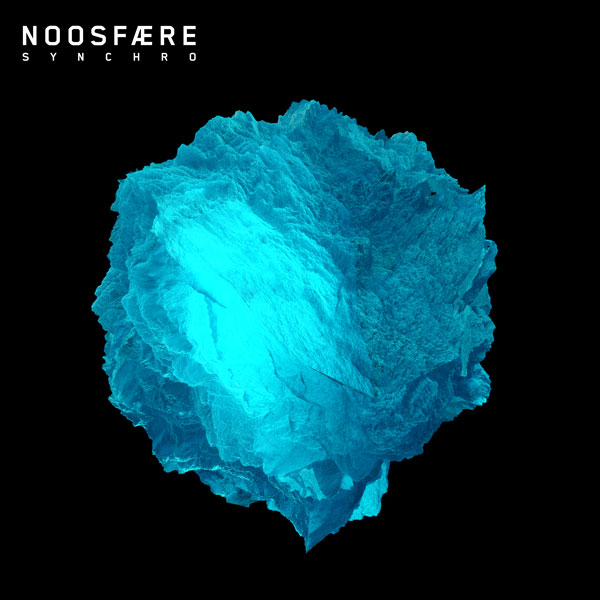
What is your favorite drink ? What is your view on mind altering substances ?
I love White Russians. Can’t get enough of that stuff!
When it comes to mind altering substances I find so much potential for the human race, but as with everything we also need to approach it with great respect. There are so many interesting studies going on these days that highlight the potential of MDMA-assisted psychotherapy that can help heal the psychological and emotional damage caused by sexual assault, war, violent crime, and other traumas. Magic mushrooms helping chronically ill people with their death anxiety. Cannabis that help so many people that suffers from great pain and I could go on and on. It is an exciting time to be in. We are entering the 3rd wave of psychedelics, where the 1st wave was indigenous use of psychedelics for thousands of years, the 2nd wave was the use of psychedelics during the counter-culture of the 60s and 70s and now the 3rd wave is upon us brought about by psychedelic research and recent developments in cannabis legalization. I really hope it will give nuance to the way mainstream culture perceives psychedelics.
Thank you for your time ….. if you wish to transmit a message to our readers please do it ?
Remember to follow your heart and always believe in yourself no matter what other may tell you!

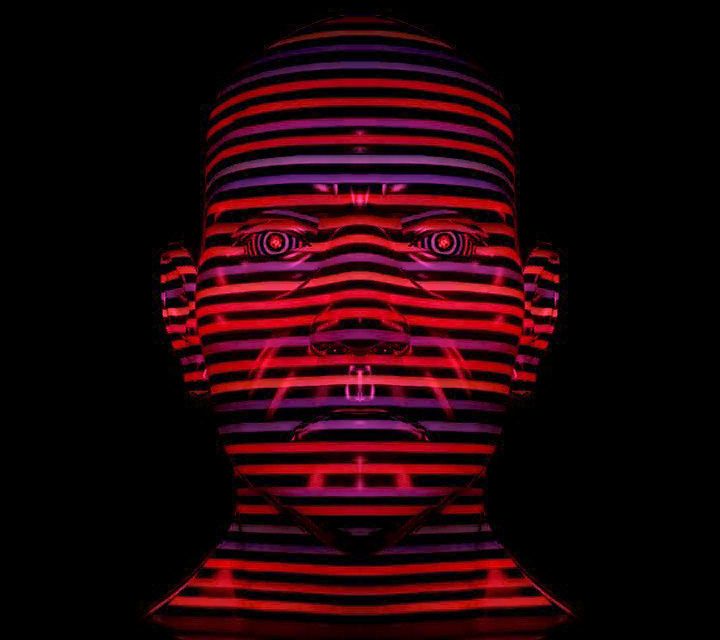
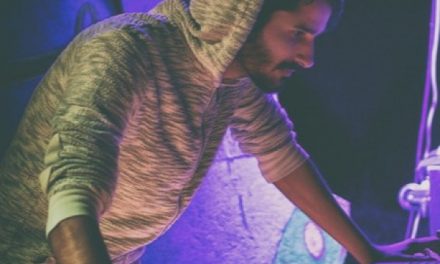
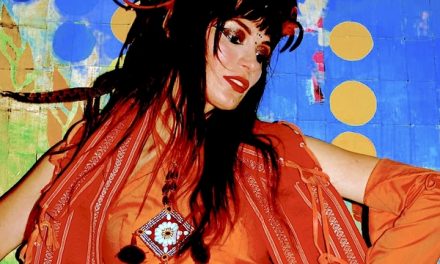
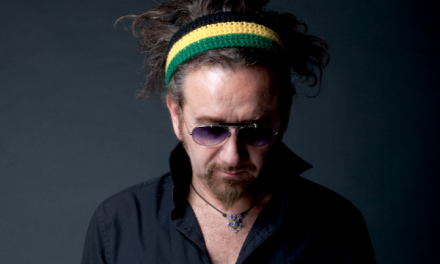
![[Interview] with Asura (2010) by chillbase.org](https://www.psybient.org/love/wp-content/uploads/asura2-e1424211763597.jpg)
